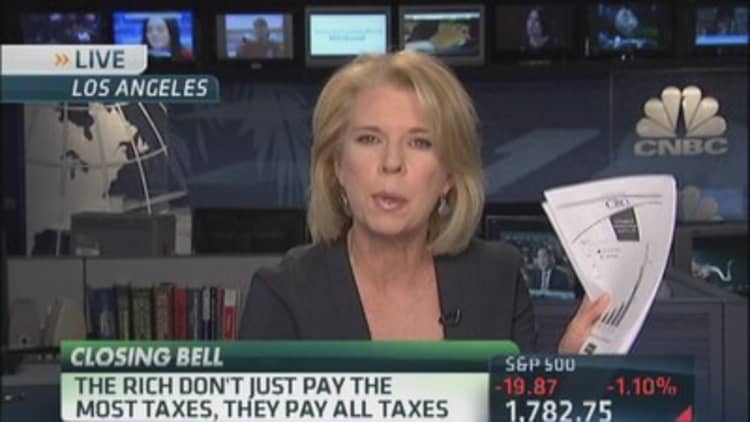The Treasury Department said on Thursday it has signed six more anti-tax evasion pacts with foreign governments, including several jurisdictions previously criticized as tax havens.
The agreements were completed this past week with Bermuda, Malta, the Netherlands and three UK Crown Dependencies: Jersey, Guernsey and the Isle of Man, the department said.
The agreements are part of a U.S. effort to enforce the Foreign Account Tax Compliance Act (FATCA), enacted in 2010 and set to take effect next July.
FATCA requires foreign financial institutions to tell the Internal Revenue Service about Americans' offshore accounts worth more than $50,000. It was enacted after a Swiss banking scandal showed U.S. taxpayers hid substantial fortunes overseas.
(Read more: Nearly 1,200 IRS vendors owe back taxes)
With these six deals finalized, the United States now has 18 agreements in place and another 11 near completion.

"This large number of signings in one week alone sends a strong signal to tax evaders everywhere: International support for FATCA is growing,'' Deputy Assistant Secretary for International Tax Affairs Robert Stack said in a statement.
To implement FATCA worldwide, the Treasury Department is negotiating "intergovernmental agreements'' (IGAs) that give financial institutions in foreign countries more certainty about what they must do to comply with FATCA.
(Slideshow: Europe's vanishing tax havens)
Bermuda, Malta, and the three UK Crown Dependencies were among jurisdictions labeled as tax havens in the past, according to a January 2013 Congressional Research Service report.
The Netherlands has been criticized as a tax haven for corporations, the report said.
The IGAs signed with Malta, the Netherlands and the UK Crown Dependencies are reciprocal, requiring the IRS to disclose to the foreign governments similar information about their citizens' financial accounts in the United States.
—By Reuters

